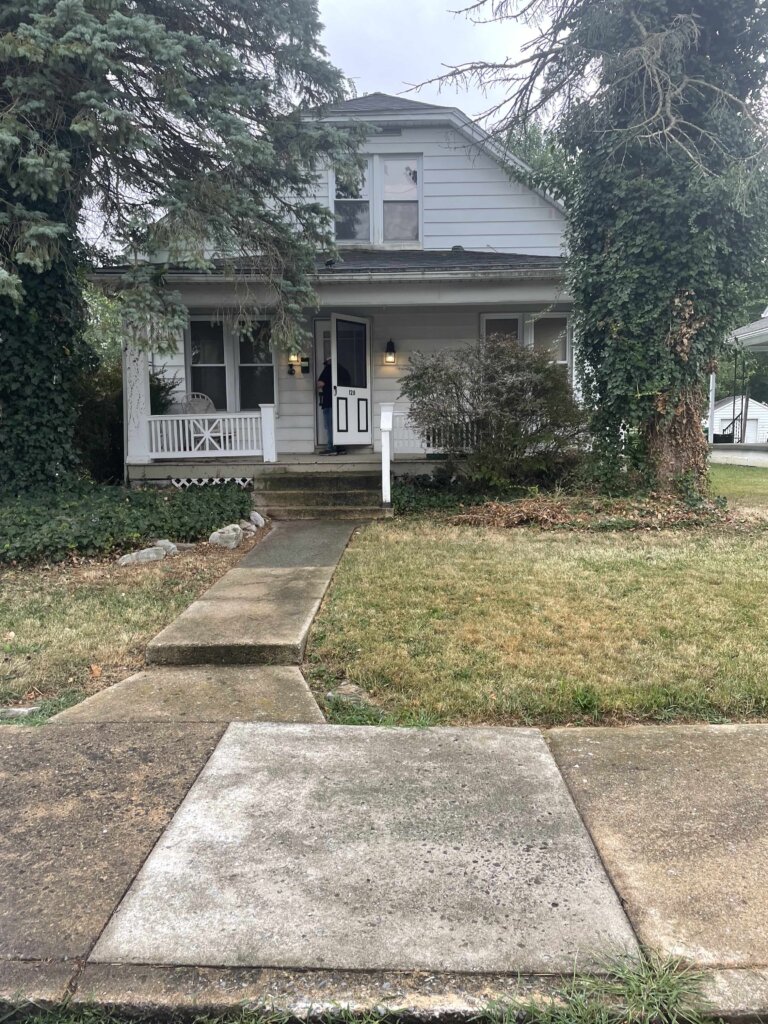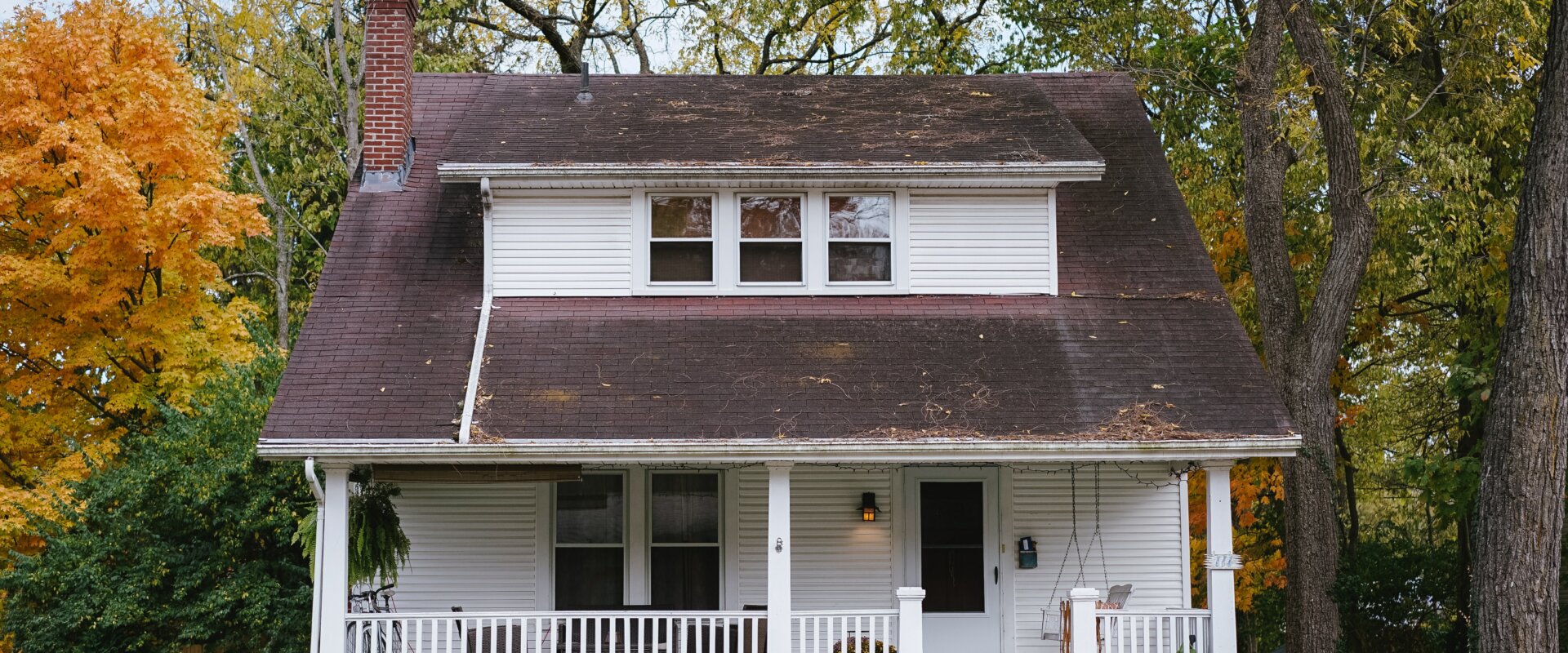If you have termite damage in your Reading home, know that you’re not the only one! A lot of properties in Reading, particularly those over 50 years old, will experience termite damage at some point. Even large termite control companies have recognized this. According to Orkin’s website, Pennsylvania is situated in TIP Zone #2 (moderate to heavy) for termite infestation. This implies that the possibility of termite damage is significantly high. To comply with the building standards for new homes set by the International Residential Code, areas with higher chances of termite activity need more termite control measures compared to areas with lower activity rates. In this article, we’ll discuss the harms termites can cause to your house and how you can address termite damage if you plan to sell your property.
How Do Termites Do Damage?
Termites Eat The Structural Wood
Some types of termites, like the subterranean termite, need moisture to live. They make their homes in damp soil and this often leads to damage in the foundation and lower parts of buildings. Fixing this kind of damage can be expensive and may impact other parts of the building.
Termites Eat Wood Around Doors and Windows
It can be challenging to inspect the wood in certain areas of your home where termites may be present, such as under the house, inside walls, and in the attic. To check for termite damage, it is necessary to purposefully crawl under the house and into the attic. You can inspect other wood areas around your home, like the frames around windows and doors, as frequently as needed. Wood frames are commonly used to install doors and windows in homes. If the wood appears wavy, porous, or brittle, it may be a sign of termite damage.
Termites Eat Wood Inside The House
If you don’t get rid of termites that start feeding on the wood beneath your home, they will end up inside your walls. Additionally, there is a certain type of termite called “dry wood termite” that can consume wooden furniture and other wooden parts of your home. Unlike subterranean termites, dry wood termites don’t need moisture to survive.
This list doesn’t include all the potential damages that termites can cause. They can infest any wood present in or around your house. Until termites are completely eradicated, they will keep causing damage to your home. Seeking professional help as soon as possible is the most effective way to stop termite damage.

Does Homeowner Insurance Cover Termite Damage?
It is recommended that individuals verify their insurance coverage with their respective companies. According to Progressives Insurance’s website, termite damage is generally not covered under most home insurance policies. This information can be worrisome, especially if one discovers significant damage caused by termites in their home.
What Are The Usual Signs of Termite Damage?
Forbes magazine published an article about the signs of termite damage, which include…
- The drywall is discolored or drooping.
- The paint is peeling off and it looks like water damage.
- The drywall has small, punctured holes.
- Buckling wooden or laminate floorboards
- Termites can introduce moisture to your floor which can cause the tiles to loosen.
- The floorboards are making a lot of squeaky sounds.
- The wood is deteriorated and broken.
- The windows and doors are stuck.
- Maze-like patterns in furniture, floorboards or walls
Follow These Steps To Sell A House In Reading With Termite Damage
Deal With Those Pesky Bugs And Get Rid Of Them.
If you’re unsure where the termites are coming from, it can be difficult to address the problem. Termites could be entering through hidden openings or tunnels within the wood or beams. You should hire an exterminator to help you locate the source of the infestation. Additionally, you should remove any wood that is in contact with the ground, as this is a common way termites enter the building. Finally, consider getting a termite treatment to prevent future damage.
Identify The Damage They Did And Get It Repaired
Before showing the property to traditional buyers, make sure to calculate the cost of repairing any significant termite damage. Keep in mind that termite damage is often not noticeable until it is uncovered, much like peeling an onion. Damage can be extensive and hidden behind layers of drywall. All necessary repairs must be completed before selling the property.
Disclose The Problem To Your Future Buyer
When working with a traditional real estate agent to sell your home, it’s important to follow the termite disclosure law and let the buyer know about any termite issues. The buyer will conduct a home inspection, which may uncover termite damage. Disclosing this information is both a legal requirement and the right thing to do. To sell the home, you’ll also need to provide a termite inspection report, proof of treatment, and possibly a warranty, which can be costly. Some sellers choose alternative options due to these expenses.
What If I Can Not Afford All Of This And Need To Sell My Termite Damaged Home In Reading Quickly?
If you’re unable to pay for pest control to stop active termites or the cost of repairing significant structural damage, Awakened Home Buyers can help. We’re able to assess your home in Reading, and having dealt with similar problems before, we’re confident in our ability to tackle this issue. Since we are experienced in fixing up and reselling homes, we won’t need a typical home inspection as we’ll take care of any issues ourselves. This means you won’t need to supply a termite letter or warranty, as we’ll remove any termites and pay for repairs. If we decide to buy your termite-damaged home, you won’t have to cover any closing costs. Even though many buyers shy away from termite-damaged homes, we won’t be discouraged. We buy homes directly from homeowners without any repairs or renovations needed. Additionally, we also buy inherited properties and homes that are in foreclosure.Click here to learn more about how Awakened Home Buyers operates. If you need assistance and want to receive an offer in approximately 24 hours without any commitment, please call us today at 717-690-1055.

